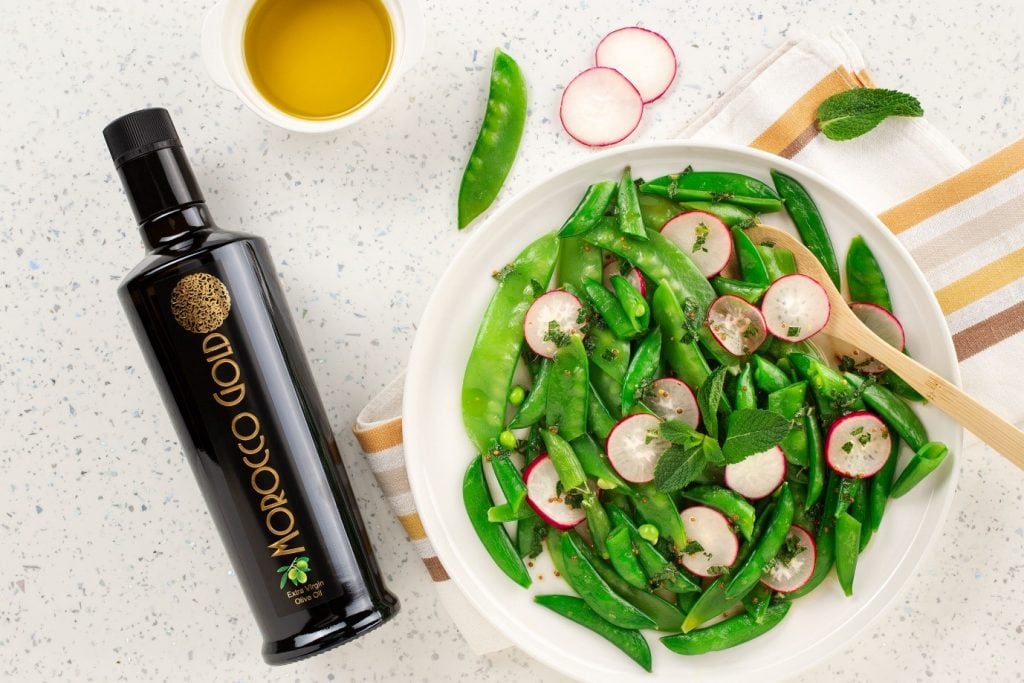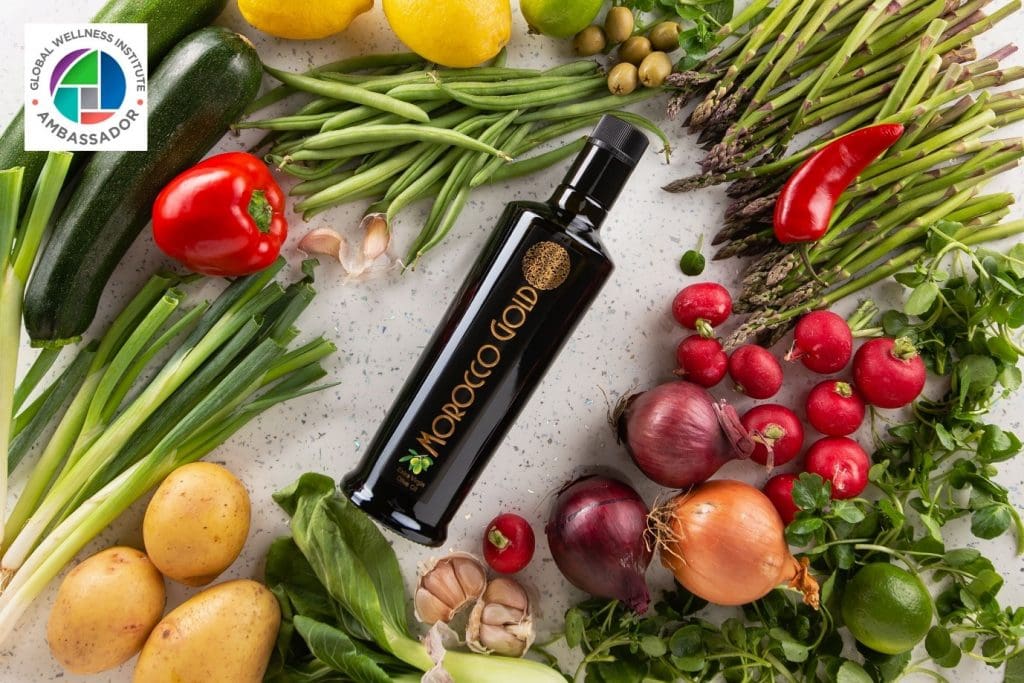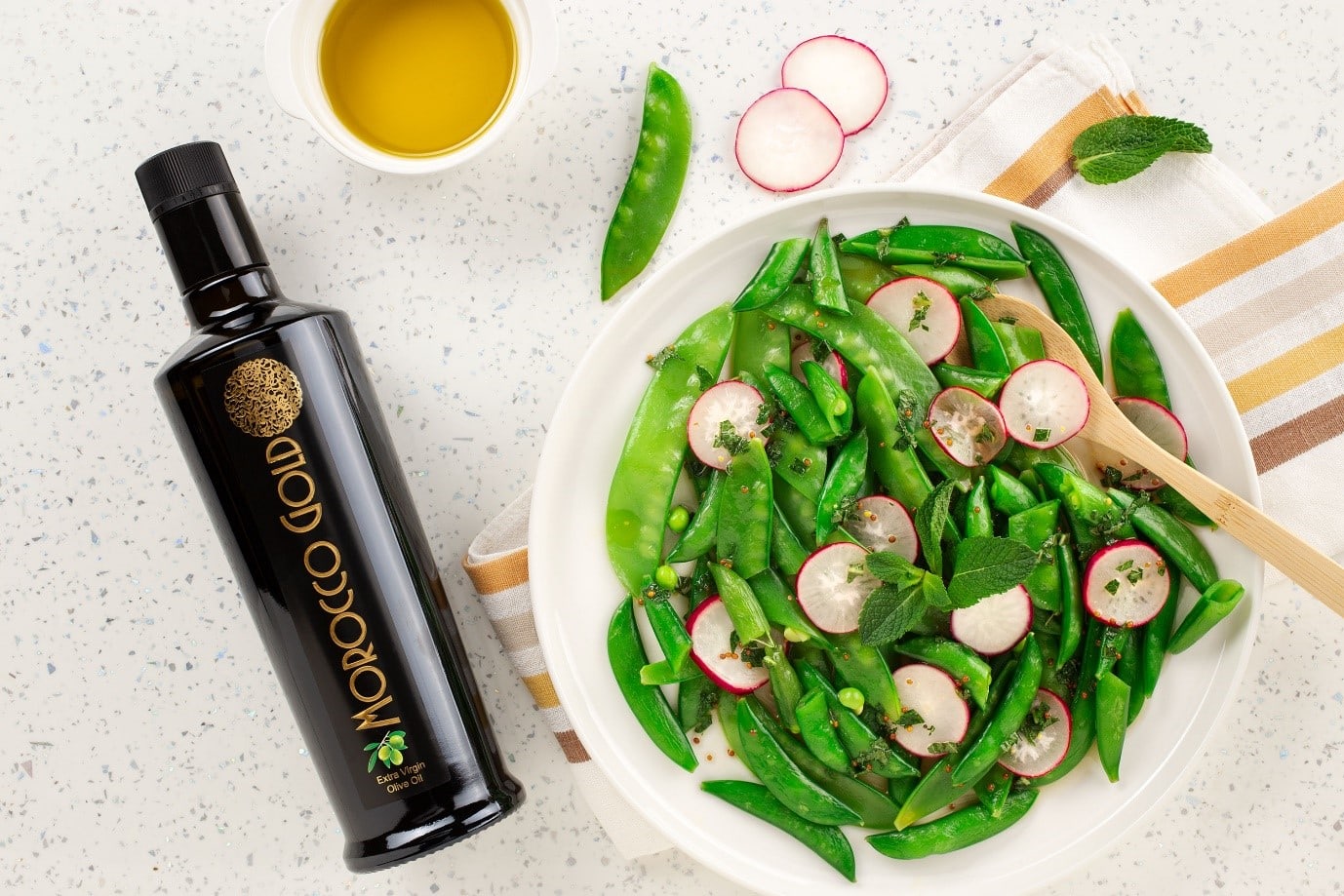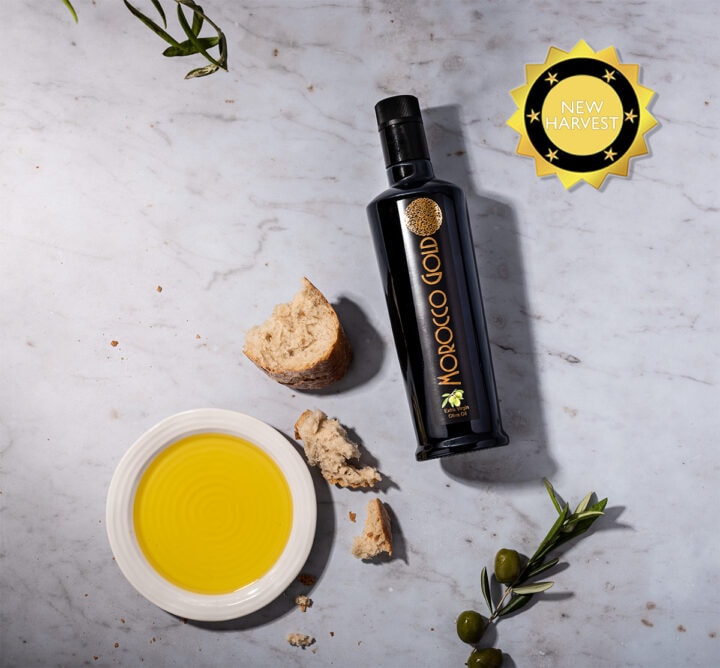Why It’s Worth Shopping Around For The Highest Polyphenol Olive Oil
Updated November 28th 2024

Summary
- Moroccan extra virgin olive oil is made from the first pressing of olives, which is why it is called “extra virgin.”
- Extra virgin olive oil is richer in nutrients and antioxidants than the other types of olive oil, making it a healthy and nourishing addition to your diet.
- ΩMoroccan extra-virgin olive oil’s densely packed nutrients soothe, nourish, and moisturize skin and hair, leaving it silky-smooth and soft.
- Moroccan extra virgin olive oil truly embodies the essence of a healthy lifestyle.
- The best quality extra virgin olive oils are high in polyphenols.
Contents
Polyphenol-Rich Extra Virgin Olive Oil: Is It Worth It?
With its unique health benefits and luxurious taste, premium extra virgin olive oil like
Morocco Gold – rich in polyphenols – stands out as a true culinary and nutritional powerhouse. But what does “polyphenol-rich” really mean, and why does it matter? Let’s explore why making the switch to a premium, polyphenol-rich olive oil like Morocco Gold should be at the top of your list.
Polyphenols are naturally occurring compounds found in plant-based foods, including olives. They are well-known for their antioxidant properties, which help protect the body against oxidative stress caused by free radicals. Research has linked polyphenols to a wide range of health benefits, from reducing inflammation to promoting heart health and supporting brain function.
Extra virgin olive oil (EVOO), particularly when it is premium and cold-pressed, is a rich source of these prized compounds. The highest-quality oils are packed with health-promoting polyphenols because they are carefully produced to preserve the olive’s natural nutrients and flavours.
The European Food Safety Authority (EFSA) even recognizes olive oil polyphenols for their ability to protect blood lipids from oxidative stress—a significant benefit for reducing the risk of cardiovascular disease. But not all EVOOs have the same polyphenol levels, which is where quality and sourcing play a defining role.
Extra virgin olive oil is a premium cooking oil that is made from the first cold pressing of olives. In addition, extra virgin olive oil has a lower smoke point than other oils, making it ideal for cooking vegetables. The lower smoke point means that the oil will not burn as easily, and it will also help to preserve the nutrients in the vegetables. As a result, cooking vegetables in extra virgin olive oil can help to ensure that they maintain their nutritional value.
What Makes An Olive Oil ‘Premium’?
When navigating the shelves of olive oils, you may wonder what distinguishes a “premium” bottle from its standard counterparts. Here are the defining factors that elevate certain olive oils to premium status:
- Quality of Olives: Premium olive oil often begins with carefully selected olives, often early-harvested when they are still green. This early harvesting ensures a higher concentration of polyphenols, though it also yields less oil, contributing to its higher price.
- Cold-Pressing: This method ensures that the olives are processed without the use of heat or chemicals, retaining their nutritional properties and rich flavour.
- Low Acidity: Premium olive oils have extremely low acidity (often below 0.3%), indicating top-notch quality. Low acidity also correlates with freshness and the proper handling of raw olives.
- Traceable Origin: Premium EVOOs often come from single estates or regions known for ideal growing conditions. Transparency in sourcing fosters trust and ensures quality consistency.
- Taste and Aromas: Premium EVOO is characterized by a robust, fruity, and slightly bitter taste with hints of pepperiness. These qualities are strong indicators of higher polyphenol content.
Premium brands like Morocco Gold take these factors to heart, offering an EVOO that delivers exceptional flavour and nutrition in every drop.
You may now have an idea just how good premium olive oil is for your health, but do you know exactly why that is?
Also known as liquid gold (and for good reason!), extra virgin olive oil is very high in monounsaturated fat (the kind that’s good for you, so great news there) but it also has polyphenols in it that makes the oil incredibly good for our health.
These are naturally occurring micronutrients that are found in plants, which help to give the plants their colour but also protect them… and when you add these plants to your diet, you’re getting all the associated health benefits as well. What could be better?
Polyphenols serve as antioxidants and can help prevent damage to your cells from the free radicals floating about as a result of smoking, pollution, certain foods and so on… and it’s thought that they can act as anti-inflammatories, as well.
Why Cook Vegetables in Premium Olive Oil?

If you’re serious about healthy eating, cooking your vegetables in premium polyphenol-rich EVOO is a game-changer. Here’s why:
1. Enhanced Nutrient Absorption
Many vegetables contain fat-soluble vitamins (like A, D, E, and K) and antioxidants. Cooking them with olive oil helps your body absorb these nutrients more efficiently, maximizing their health benefits.
2. Boosting Antioxidant Power
Research suggests that cooking vegetables in high-quality olive oil might actually enhance the antioxidant activity of your meal, thanks to the interaction between the oil and plant compounds.
3. Flavour Elevation
Premium EVOO doesn’t just nourish your body; it’s a flavour enhancer. The aromatic, slightly peppery taste of a polyphenol-rich olive oil adds a layer of complexity to your dishes, transforming simple roasted vegetables into a culinary delight.
4. High Smoke Point
Despite a common myth, high-quality EVOO has a reasonably high smoke point, making it suitable for sautéing, roasting, and even light frying. Its stability and nutrient density remain intact, unlike less refined oils.
When you pair premium EVOO with fresh, vibrant vegetables, you’re creating a dish that’s as healthy as it is delicious.
What Is the Polyphenol Content in Morocco Gold Extra Virgin Olive Oil?
Not all olive oils are created equal, and that’s especially true when it comes to their polyphenol content. Morocco Gold sets itself apart with impressive levels of these powerful compounds, thanks to its dedication to quality and tradition.
- Single-Origin Excellence
Harvested from a single source in Morocco’s fertile valleys, Morocco Gold ensures unparalleled quality and purity. This dedicated sourcing contributes to its remarkable polyphenol profile.
- Cold-Pressed Perfection
Morocco Gold is produced using cold-press extraction, which preserves the olive’s natural nutrients, antioxidants, and robust flavours.
- Independent Analysis
Every batch of Morocco Gold is independently tested for its chemical and sensory properties. Its high polyphenol levels consistently meet the standards recognized for promoting health benefits.
- Taste and Notes
Not only does Morocco Gold excel nutritionally, but its flavour profile is equally outstanding. With delicate fruitiness, balanced bitterness, and a peppery finish, it is the ultimate choice for drizzling over salads, roasting vegetables, or elevating a hearty soup.
Morocco Gold’s commitment to excellence combines centuries-old traditions with modern quality controls to ensure you’re getting the best.
Interestingly, a recent study found that using extra virgin olive oil to cook vegetables in can actually help draw out the polyphenols in the veggies themselves when the sofrito method is used.
This is a popular Mediterranean way of cooking in the preparation of a light sauce with onion, tomato and garlic, which apparently contains 40 different phenolic compounds and has a high content of carotenoids… and is associated with reduced cardiovascular risk and insulin sensitivity.
Food science professor at the University of Barcelona Rosa Maria Lamuela-Raventos was quoted by the Olive Oil times as saying: “There is an exchange of polyphenols during cooking, some more apolar from vegetables go to the oil fraction, while some from the oil are absorbed by the vegetables.
“In this paper we observed that some of the polyphenols from the tomato, onion and garlic were moving to the oil fraction, being more bio-accessible, so easier to be absorbed.”
So there you have it! Now you know some of the science behind why olive oil is just so very good for you!






